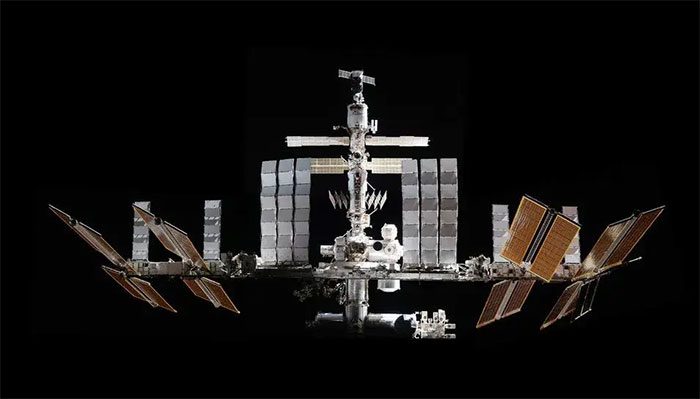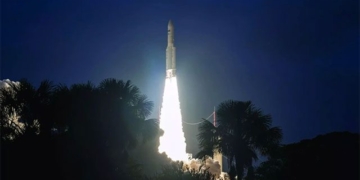The leak area is located at the rear end of the Russian module on the International Space Station (ISS), where the Progress spacecraft recently docked.
During a press conference held at NASA’s Kennedy Space Center, ISS Program Director Joel Mantalbano confirmed that the crew working on the Space Station is safe.
The leak area is approximately 0.9 meters long and currently does not affect the operations of the crew or the vehicles on the station, but it is something that everyone needs to be aware of.
The Russian team and international partners are working together to resolve the issue.

International Space Station (ISS) – (Photo: NASA).
Mr. Mantalbano also emphasized that this leak incident does not affect the Crew-8 mission, which is set to begin at 12:04 AM on March 1 (Eastern Time, corresponding to 12:04 PM the same day in Vietnam).
Crew-8 is the eighth crew rotation mission conducted by the American private space company SpaceX.
According to Space.com, the leak actually began a few weeks ago and worsened about a week before Progress docked on February 14.
This is not the first time this module has experienced a leak. There is still no specific cause for the incident identified.
For over a year, Russia has continually faced leak incidents in space equipment. One incident forced them to allow a Progress cargo spacecraft to “commit suicide” by crashing into the Pacific Ocean.
The most serious incident occurred with the crewed Soyuz MS-22 spacecraft in December 2022, which was concluded to be caused by debris from space colliding with it.
This incident left three Russian-American astronauts stranded on the space station for up to 12 months instead of the planned 6 months, before Russia launched an empty Soyuz to replace them.
The leak incidents in the space station modules have not had their specific causes identified, but space debris is the most suspected culprit. The area around Earth’s orbit is currently filled with space junk from various countries.
The ISS itself has had to fire its engines several times to change its orbit or ask the Russian Progress spacecraft to push it away to avoid debris that was on a collision course in the past year.




















































